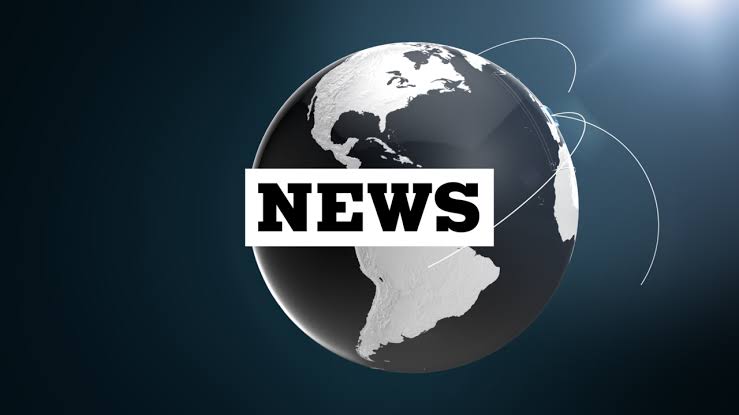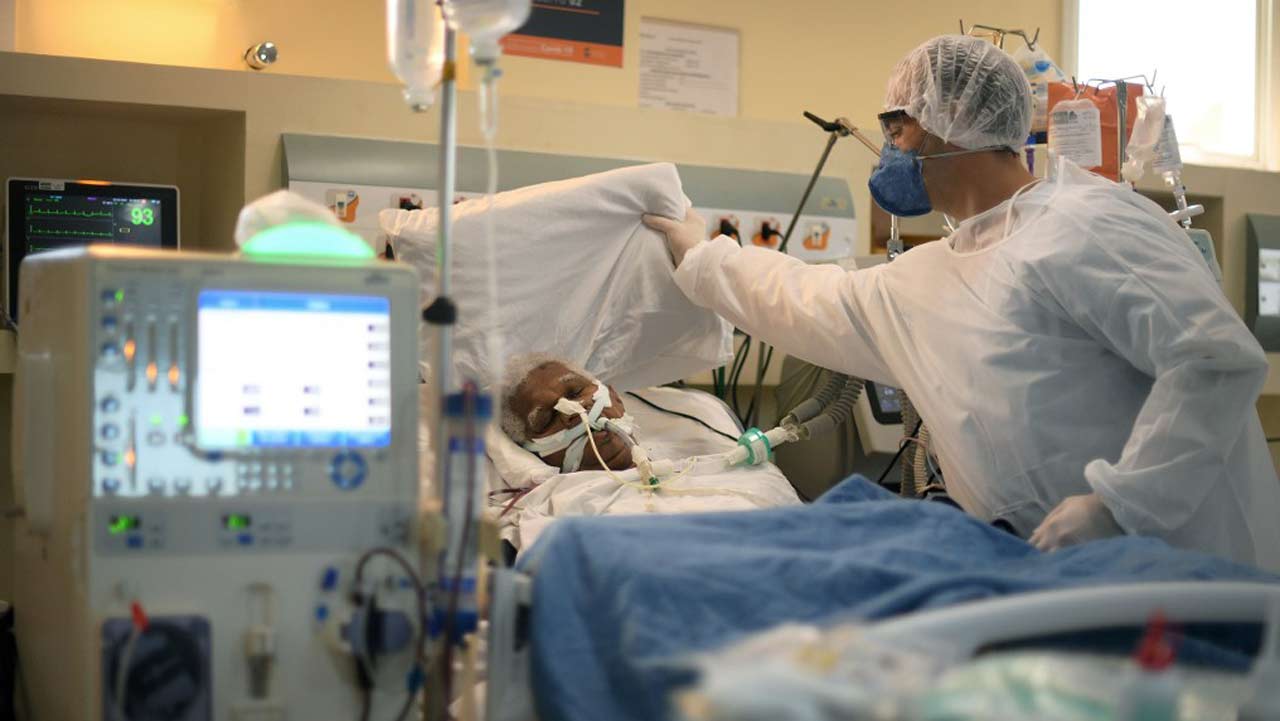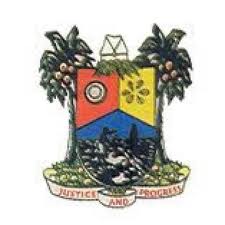It started with a strike and went on to breached agreements, mistrust, a threat of proscription and finally possible plans to privatise hospitals.
The past 31 rollercoaster days have seen doctors in public hospitals go on strike nationwide, empty hospitals, accusations, counter-accusations, mandates and court orders.
Talk that hospitals could be privatised wasn’t foreseen, and both sides are reticent to comment. A health ministry adviser insisted he “didn’t know anything about it,” when asked to comment.
Dr Abubakar Abdulrahman, an executive of Nigerian Medical Association told Weekly Trust that the NMA, whose strike since July 1 started the chain reaction, had not been officially informed of privatisation moves.
“It still remains rumour,” he said. “Until they bring it, then we will know what to say.”
But consultants, whose position in hospitals is among 24 complaints by NMA, have had plenty to ask.
“Are there no laws that establish the tertiary health institutions? Will privatisation of Teaching Hospitals fulfil the objectives for which they were established? Private hospitals are for profit rather than for training and research,” said Medical and Dental Consultants Association of Nigeria (MDCAN) in a statement last week.
“Will they serve the primary functions as defined in the Acts that established the hospitals? Will the Ministry of Health find suitable replacement for all specialities in Teaching Hospitals, from unemployed doctors and retired doctors? Will the Ministry of Health reconstitute the entire health system even if it is intended that foreign doctors will be imported?”
It came alongside claims that the federal government was moving to proscribe NMA.
Both sides have been locked in a stalemate since doctors went on strike. Two agreements signed in attempts to hustle doctors back to work failed to hold, as did mediations by federal lawmakers.
Sources close to the negotiating teams confirmed to Weekly Trust that a proscription of NMA was mooted by the ministry, angered by protracted meetings that yielded nothing.
The ministry didn’t mind that doctors went on strike, the source said, but health minister Prof. Onyebuchi Chukwu was particularly angered that the strike was without a “backup plan” to keep hospitals running until both sides reached a resolution.
As the strike stretched, Chukwu, himself an orthopaedic surgeon and default member of NMA, stood at loggerheads with the association.
After a 10-hour meeting in the first week of the strike, he announced government had fulfilled “its own side” of agreements and demanded that NMA meet to consider suspending the strike. His comment was interpreted as an insult to NMA and an attempt to stampede doctors into ending their industrial action.
The proscription plan, news of which emerged last week, was a culmination of frustration and government’s move to extract “its own pound of flesh,” said the inside source.
MDCAN president, Dr Steve Oluwale, points to Chukwu’s reference in interviews since then to “drastic” moves to break the strike.
“We put together all the information we have, which we know is very credible, to put up that statement in the interest of the country,” he explained to Weekly Trust.
The threat of proscription has forced cracks in the NMA. Thousands of doctors stand unemployed, thousands more in the diaspora are in the wind, say doctors, and they are willing to take up any available jobs.
Among working doctors too are those who feel the government has shown commitment which should satisfy their colleagues, if they weren’t demanding too much. Many observers said the NMA had “bitten off more than it can chew.”
Doctors’ anxiety is that their strike comes at a time when insurgent attacks are producing a steady stream of casualties into hospitals where only health workers are available but no doctors.
Barely a week after a Liberian died of Ebola in Lagos, the scare of the deadly disease has spread across Nigeria like wild fire.
Insurgent attacks, Ebola scare and the national-interest offer the government plausible excuses and guarantees public opinion in its favour if it takes the proscription road, the source said.
“Unfortunately, it will be ineffective, and such military method and Gestapo style in this day and age will not do Nigerians any good,” he added.
On the back of cracks among doctors is growing resignation. “If the government feels that proscribing NMA is the solution to the problem, well, I don’t know, they are the government,” said Dr Frank Nwanodu, head of resident doctors association at National Hospital, Abuja.
A proscription, successfully done by past military governments which banned labour unions, is almost impossible in a democracy, say analysts.
“Labour laws adequately protect unions. They [government] may try but the unions will go to court and win,” an analyst tells Weekly Trust.
“Government may just want to try to disorganise the movement but government knows it is a case it cannot win. It is a move to solve an immediate problem instead of looking at long-term solution. It [government] doesn’t have the patience to do the right thing,” said the analyst who asked for anonymity.
That “should bother all of us,” says MDCAN president, Oluwale. “It is unfortunate that even in a democracy; some individuals still have ideas of the past. It will be something extraordinary for them to do that. But we are aware, no doubt at all, of such strong moves.”
The debates that would ensue are why MDCAN “didn’t speak until we got sufficient material in the public domain to react,” Olawale adds. “It is not like we haven’t known about it for some time, and that’s why it was fairly quick for us to react once we have something to work on.”
Many have called the privatisation move the right thing. It is not the first time government has talked about private sector investment in health, except for the difference that government hands will be totally off.
Its first experiment in public-private partnership in health, Garki Hospital, Abuja, has crossed the five-year mark and looks to blur the lines between big private hospitals and teaching hospitals.
Among complaints are that hospital bills will soar but so too will efficiency, watchers say, cutting the immense bureaucracy that has clogged public hospitals.
NMA president, Dr. Kayode Obembe, was not available for comment, while the health ministry has been embroiled in the new Ebola scare. But an outcome will be whether the move forces doctors to reconsider, in which it may be succeeding already.
“Just give us some more time. We are working on a few things that we need but would not announce now, but we do sincerely hope some desired results so that doctors can return to work quickly, even if it is middle-of-the-road position that will satisfy the aggrieved at the moment,” Olawale said.
ABUJA: Training Schedule for Basic Life Support BLS, Pediatric Advanced Life Support (PALS), Advanced Cardiovascular Life Support ACLS, First Aid, CPR, AED
PORTHARCOURT: Training Schedule for Basic Life Support BLS, Pediatric Advanced Life Support (PALS), Advanced Cardiovascular Life Support ACLS, First Aid, CPR, AED
LAGOS: Training Schedule for Basic Life Support BLS, Pediatric Advanced Life Support (PALS), Advanced Cardiovascular Life Support ACLS, First Aid, CPR, AED




